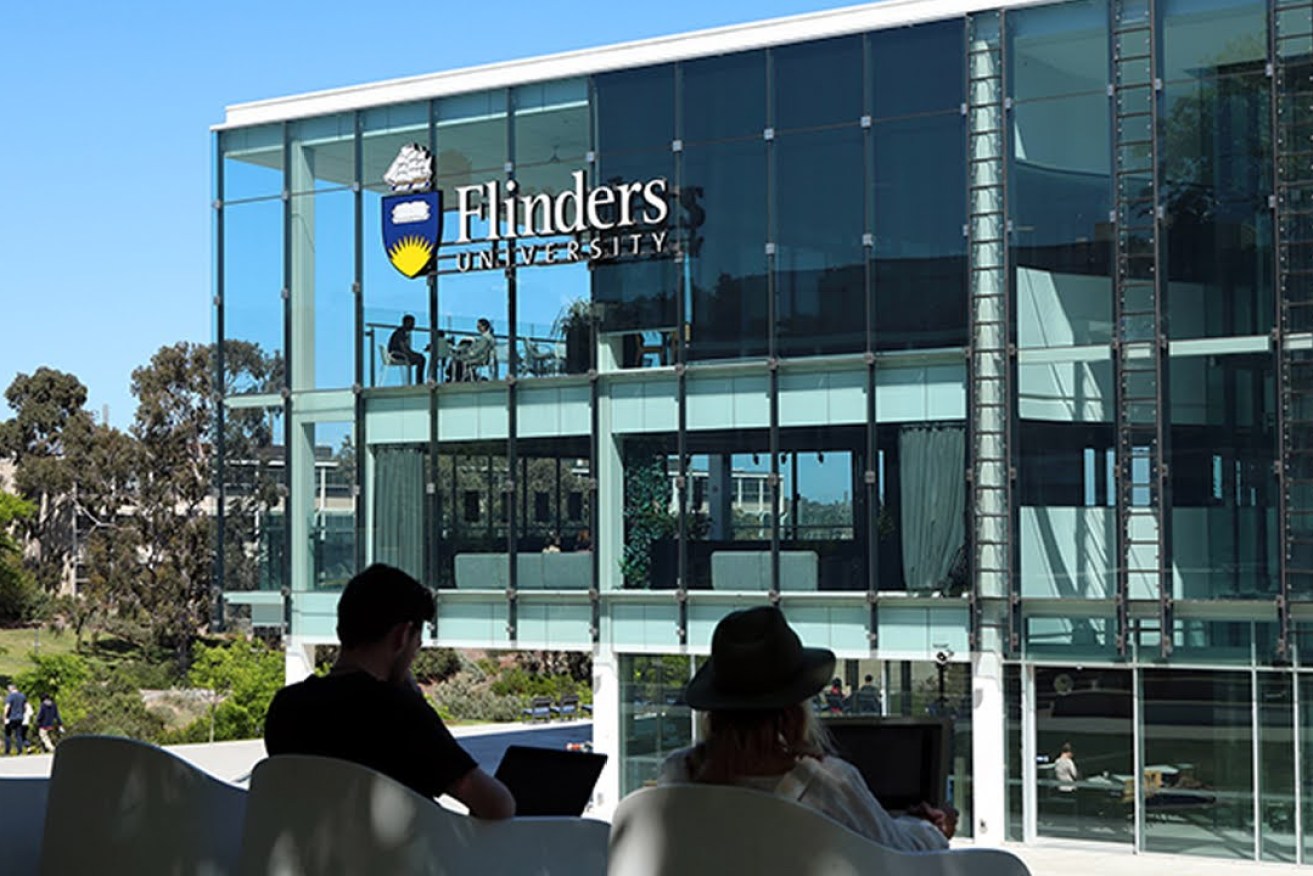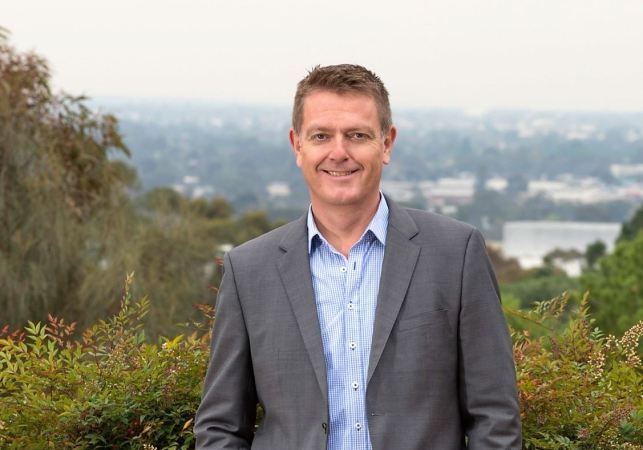‘Unfair’: Flinders’ plea for ‘equitable’ funding under uni merger
Flinders University’s vice-chancellor says the state government’s plan to create a $100m fund for disadvantaged students to attend the new Adelaide University would be “unfair” to low socioeconomic students hoping to enrol at Flinders.


Photo: InDaily
Colin Stirling gave evidence on Wednesday to the parliamentary inquiry into the establishment of Adelaide University.
The inquiry is scrutinising the Malinauskas Government’s push to merge the University of Adelaide and University of South Australia with $444.5m in support.
The bulk of the government’s financial package comes via the establishment of two perpetual funds: a $200m research fund to support the new university’s research and a $100m student support fund to improve “access and education outcomes for students from low-SES (socioeconomic status) backgrounds”.
A merged Adelaide University will have access to interest accrued from the funds each year rather than having an immediate cash injection of $300m.
If parliament approves the merger, Flinders University would be one of two public universities in South Australia.
Stirling used his opening statement to the parliamentary inquiry to say he was “supportive of the stated intents underpinning the creation of a merged university”.
Asked what he thought about the establishment of the $300m worth of perpetual funds, Stirling said he was “pleased with the recognition that those are important areas that are deserving of investment by the state government”.
“I think it’s extremely important that students from low SES backgrounds, from less privileged backgrounds, are offered the life-changing opportunities that higher education can deliver,” Stirling told the inquiry.
“Flinders is very proud on the impact that we have on low SES students and the manner in which we’re able to support them.
“The idea of enabling more such students to go to university is a very worthy idea.”
But he said he was concerned that only giving Adelaide University access to the fund would disadvantage low SES students wanting to study at Flinders.
“What I would say though is that providing funding to one institution is unfair,” Stirling said.
“And I do not mean unfair to Flinders, it’s unfair to the students who might have chosen Flinders.”
Stirling highlighted two courses in which Flinders specialises – paramedicine and nuclear engineering – and raised concerns that low SES students wanting to study those courses would not have equitable access to financial support.
“I would feel very strongly that those students – and any student who chooses Flinders for any other reason, perhaps it’s because we’re a friendlier institution that’s friendlier and more supportive, perhaps it’s even just because we’re in the south – for whatever reason, I think any low SES student deserves an equal opportunity to access… that sort of financial support if it would be pivotal in their access to higher education.”

Flinders University Vice-Chancellor Professor Colin Stirling. Photo: supplied
Commenting on Adelaide University having access to the $200m research fund, Stirling said: “A level playing field is important.”
“Flinders has been showing in recent years phenomenal progress in research.
“The state of South Australia needs to increase investment in research in universities.
“Investing in one and not investing in the other would simply be undermining the potential that we have in the university sector here in South Australia.”
Later in the hearing, Stirling argued that Flinders University’s research performance would “merit similar level of investments” from the state government.
He also raised concerns that if Flinders was excluded from access to a perpetual research fund, it would see a flood of Flinders researchers join the new Adelaide University.
“If $20m is available to one institution, then one could simply hire researchers out of Flinders and bring all their research income with them,” he said.
“That would clearly benefit the new institution, it would be to the detriment of Flinders and it wouldn’t make a jot of difference to the amount of research being done in the state.
“In that scenario, one would be spending an awful lot of money to shuffle the deck chairs but to have absolutely no impact.
“So that clearly must be avoided, and in my opinion the simplest way to avoid it is to ensure there is some equitable investment in the two institutions if two it be into the future.”
InDaily asked Deputy Premier Susan Close, who has ministerial responsibility for higher education, whether the state government was in active discussions with Flinders University about a separate financial support package or access to perpetual funds.
In a statement, Close said: “The government is committed to a strong university sector in SA and will work with all three on ensuring this remains the case.
“Flinders has many partnerships with the government, including the building of a technical college at Tonsley and the $4m commitment to the Flinders Factory of the Future.
“It is in every South Australian’s interest that the entire tertiary sector grow and strengthen.”
Premier Peter Malinaskas, at his first press conference announcing the university merger on July 2, said the government has “a big appetite to work with Flinders University into the future”.
“The government will be working as collaboratively with the new university as we are Flinders University,” he said at the time.
Asked if Flinders could have access to the funds, Malinauskas said: “We are looking forward to engaging thoughtfully and constructively with Flinders University.”
The merger inquiry continues.




